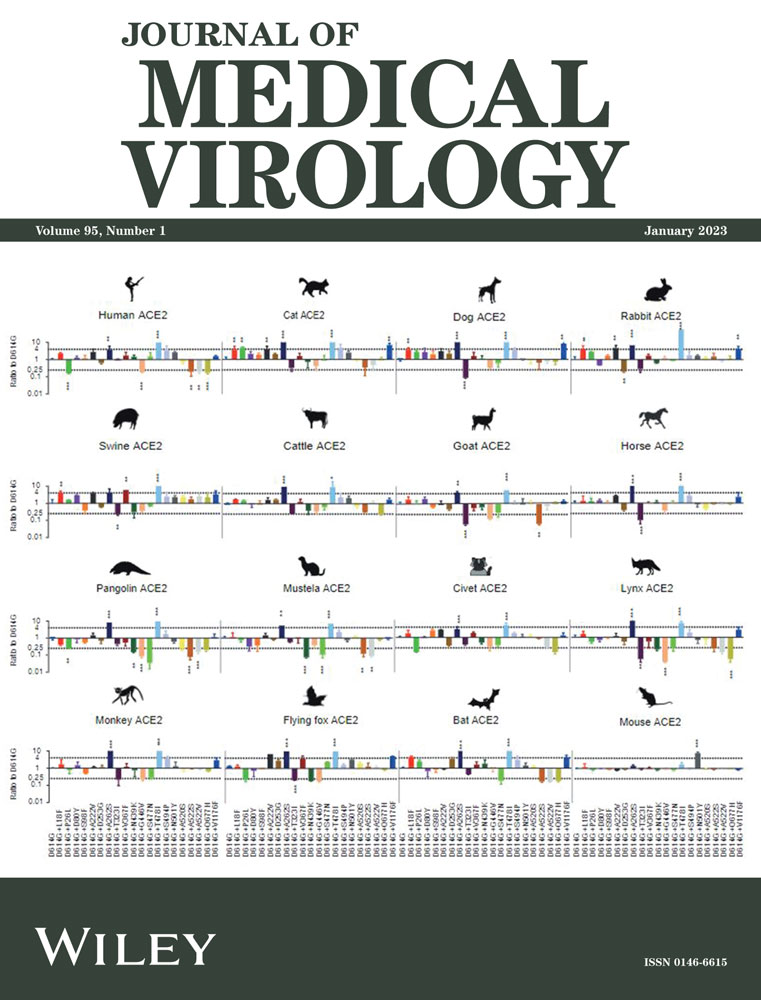Letter to the Editor: The clinical and bioinformatics analysis for the role of antihypertension drugs on mortality among patients with hypertension hospitalized with COVID-19
We read the article by Zhao, et al.1 with great interest. The author indicated that the survival rate of hypertensive patients with COVID-19 taking antihypertensive drugs (ARB or CCB) was higher than those who did not take antihypertensive drugs. Although the authors did consider many factors that may affect the result of the study, we believe that there are still a few more points that deserve a discussion to better elaborate on the topic.
First, the study did not state the weight of the patients. Many studies have confirmed obesity may affect the severity of COVID-19 patients. A study by Gao, et al.2 demonstrated that they found a linear increase in risk of serious COVID-19 leading to admission to hospital and death if a COVID-19 patient's body mass index (BMI) was more than 23 kg/m2. Also, an important dose–response meta-analysis by Pranata et al.3 reported that obesity was associated with composite poor outcome and mortality of COVID-19. The meta-analysis3 showed that the risk for composite poor outcome of COVID-19 patients increased by odds ratio (OR) of 5% for every 5 kg/mg2 increase in BMI. Thus, the problem of obesity may affect the mortality of COVID-19 patients, so we suggest that this study need to consider the weight of all patients participating in the study.
Second, the study did not investigate whether hypertensive patients with COVID-19 smoked or not. However, smoking may have negative effects on COVID-19 patients. In a study by Clift et al.4 combined an observational and Mendelian randomization study to evaluate the association between smoking and COVID-19, and results from the two approaches showed increasing risks of COVID-19-related outcomes being associated with smoking, including higher hospitalization and mortality rate. In addition, a population-based retrospective study did by Zhang et al.5 also showed that smoking (OR = 1.326, 95% confidence interval [CI]: 1.055–1.652], p = 0.014) was an independent risk factor for death from COVID-19. As a result, we think smoking is a vital factor that must be considered in this study.
Third, the article did not mention whether the patients of two groups had other medical conditions. Many diseases have been proven to increase severity of COVID-19. A recent retrospective cohort study by Beatty et al.6 showed that COVID-19 patients with chronic kidney disease and chronic obstructive pulmonary disease were associated with inhospital mortality. Besides, Kim et al.7 demonstrated that the proportion of COVID-19-related death rate among individuals with chronic liver disease and diabetes significantly rose up to 13%, corresponding to the proportion of deaths from each etiology-based chronic liver disease. Therefore, various diseases may increase the hospitalization rate and mortality rate of COVID-19 patients. As a result, we suggest that the study should also investigate whether two groups of patients had other medical conditions or not.
In short, we highly appreciate the work by the authors for demonstrating the role of antihypertension drugs on mortality among patients with hypertension hospitalized with COVID-19. We think this study is extremely crucial to clinical treatment because there have been many hypertensive patients infected SARS-CoV-2 during the pandemic. And this study indicated that hypertensive patients with COVID-19 taking antihypertension drugs had lower mortality rate compared to those who didn't. We believe that by taking the aforementioned points into account, the study could provide more helpful information for patients and doctors.
CONFLICT OF INTEREST
The authors declare no conflict of interest.
DATA AVAILABILITY STATEMENT
Data sharing is not applicable to this article as no new data were created or analyzed in this study.




